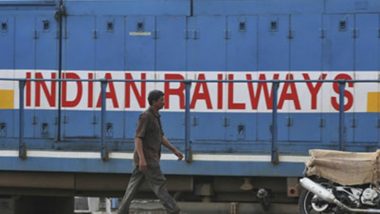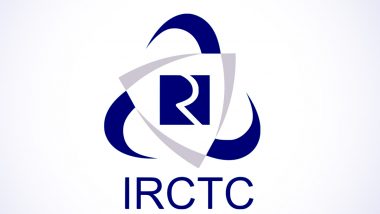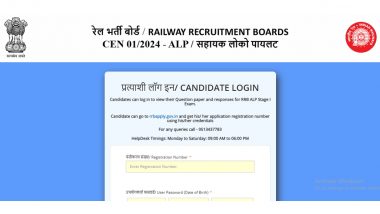New Delhi, July 27: In a bid to cut expenditure amid the COVID-19 pandemic, the Indian Railways has decided to discontinue a British-era practice of sending confidential documents and files via personal or Dak messengers. Instead, the Indian Railways said that communication between the railway board, zones and PSUs will be done through video conferencing. The order in this regard has been issued on July 26. Indian Railways Reports Zero Passenger Deaths in Past 15 Months, 2019-2020 In Its 'Best Ever Safety Performance'.
"As a measure to reduce cost and improve savings on Establishment related expenditure, Board has desired that all discussion among official of Railways, PUs and railway board should be invariably held over Video Conferencing, accordingly booking of personal messenger/Dak messenger should be stopped immediately," the Railway Board stated in its letter to all zones. "Compliance of the above should be ensured, as it would lead significant savings in allowances, stationery, Fax etc.," it added. Indian Railways Creates History, Records 100% Punctuality Rate of Trains on July 1.
Who Are Dak Messengers?
To send a file or confidential documents across the Railways' network - from Railway Board to its various departments, to its zones and divisions - the Indian Railways would identify a person, mostly a peon. This practice was introduced by the British when there was no internet or email. Even though advanced means of communication and transfer of electronic files were available, the Railways had been sending documents via Dak and personal messengers. The use of Dak messengers would cost money.
The Indian Railways has nearly 5,000 dak messengers and personal messengers and would spend about Rs 10 crore on their allowances annually. By sending files and messages through the electronic medium using the internet, the Railways aims to save this amount.
Besides suspending the Dak messenger, the Indian Railways has advised the zones to control expenditure by reducing staff cost, rationalising staff and also by making them perform multiple tasks. It further asked the zones to review contracts, reduce energy consumption and cut cost in administrative and other areas.
(The above story first appeared on LatestLY on Jul 27, 2020 11:38 AM IST. For more news and updates on politics, world, sports, entertainment and lifestyle, log on to our website latestly.com).













 Quickly
Quickly





















